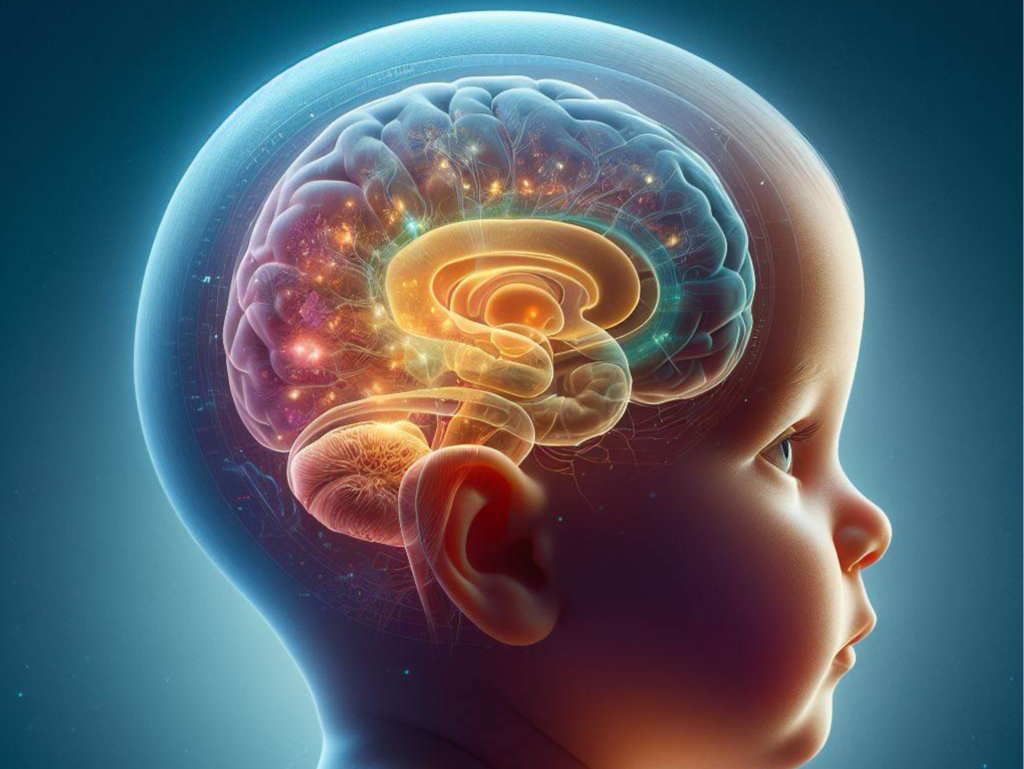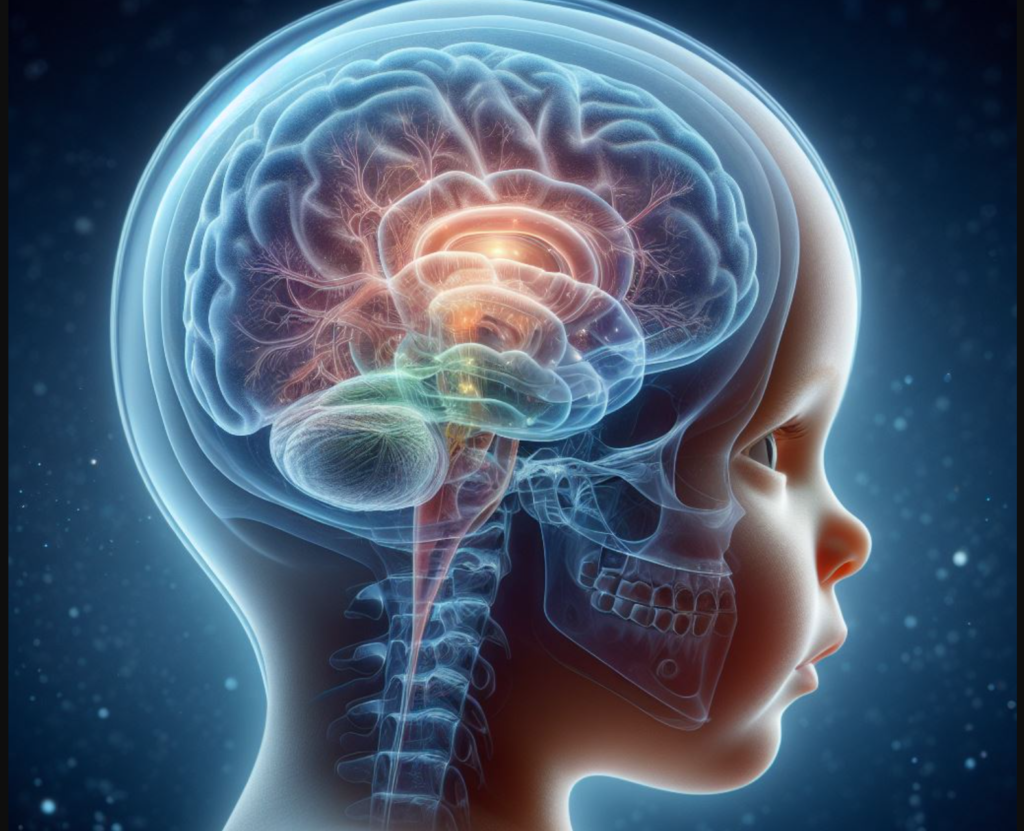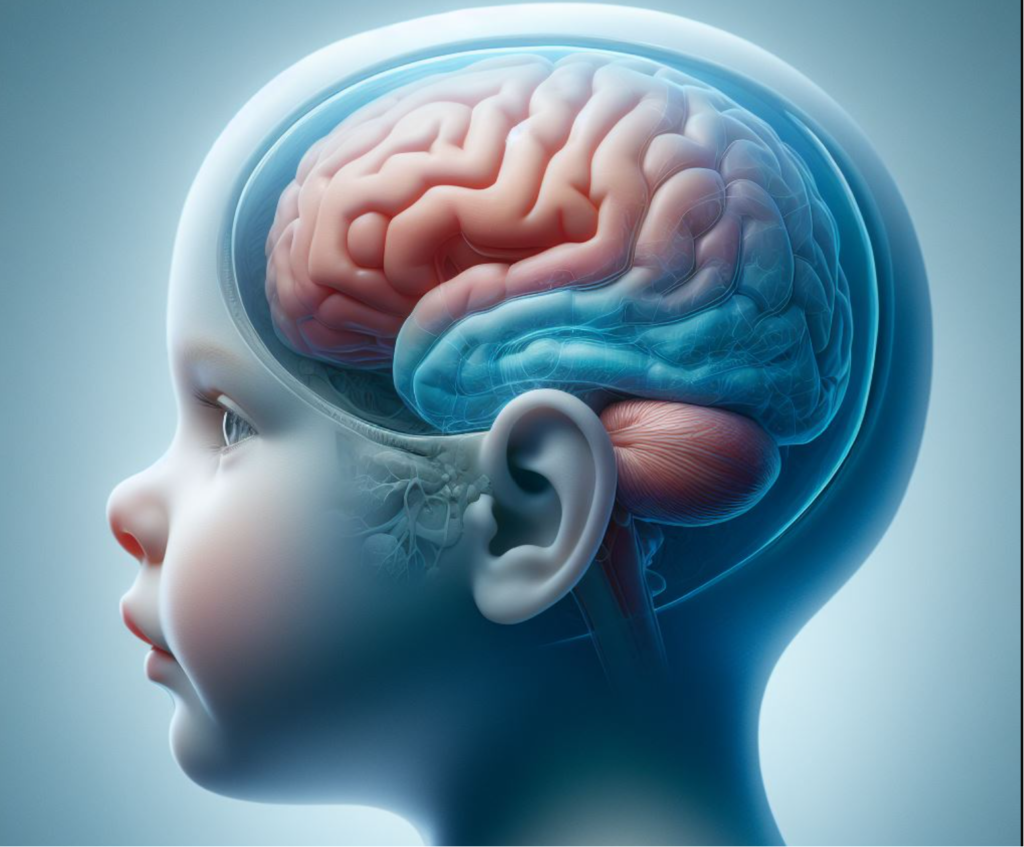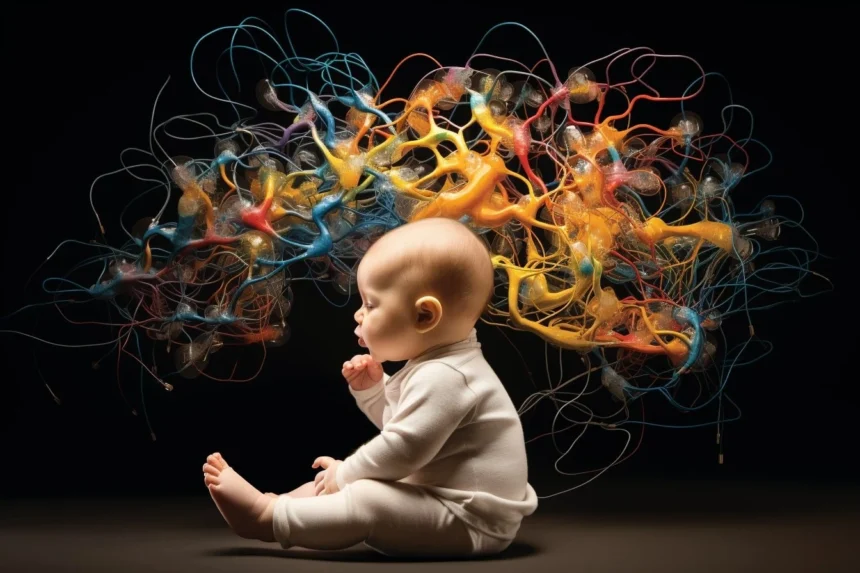Baby’s Brain are often considered to be helpless and dependent, with significantly less developed brains than other primates. This has led to the assumption that human brain development and evolution are unique, and that humans are born prematurely to accommodate their large brains. However, a new study published in the journal Science Advances challenges this view, by showing that human newborns’ brains are similarly developed to other primates at birth, and that the difference lies in the postnatal growth and complexity of the human brain.
Development of a Baby’s Brain
The study, led by researchers from University College London (UCL), compared the brain structure and function of 100 human newborns with those of 103 preterm newborns and 1,110 young adults, using magnetic resonance imaging (MRI) data from the Developing Human Connectome Project and the Human Connectome Project. The researchers also compared the human data with those of other primates, such as chimpanzees, bonobos, gorillas, and orangutans, using existing databases and literature.
The researchers found that human newborns have brains that are similar in size, shape, and organization to those of other primates at birth, and that they have comparable levels of brain activity and connectivity. The researchers also found that human newborns have similar proportions of gray matter (the outer layer of the brain that contains the nerve cells) and white matter (the inner layer of the brain that contains the nerve fibers) to other primates at birth, and that they have similar patterns of brain asymmetry (the difference between the left and right hemispheres of the brain) to other primates at birth.
Also read : Why Don’t Metals Burn? Unveiling The Fire-Resistant Nature Of Metallic Elements

The researchers concluded that human newborns are not born with significantly less developed brains than other primates, but rather that they are born at a typical developmental stage for primates. The researchers suggested that the apparent underdevelopment of human newborns is due to the fact that human brains undergo a remarkable postnatal growth and maturation, which results in a much larger and more complex brain than other primates. The researchers estimated that human brains grow by about 200% in the first year of life, and by about 300% in the first five years of life, while other primate brains grow by about 50% in the first year of life, and by about 100% in the first five years of life.

The study also revealed some of the mechanisms and factors that drive the postnatal growth and complexity of the human brain. The researchers found that human brains have a higher rate of cell division and a longer period of cell migration than other primate brains, which means that human brains produce more and more diverse nerve cells and fibers. The researchers also found that human brains have a higher rate of synaptogenesis and a longer period of synaptic pruning than other primate brains, which means that human brains form more and more refined connections and networks. The researchers also found that human brains have a higher rate of myelination and a longer period of myelin maturation than other primate brains, which means that human brains have more and more efficient insulation and transmission of nerve signals.

The researchers also identified some of the ecological and social factors that may have influenced the evolution of the postnatal growth and complexity of the human brain. The researchers suggested that human brains may have evolved to cope with the challenges and opportunities of living in diverse and dynamic environments, where they have to learn and adapt to various situations and stimuli. The researchers also suggested that human brains may have evolved to facilitate the communication and cooperation of living in large and complex social groups, where they have to interact and bond with various individuals and entities.
The study, published in the journal Science Advances, is the first to demonstrate that human newborns’ brains are similarly developed to other primates at birth, and that the difference lies in the postnatal growth and complexity of the human brain. The study also adds to the growing knowledge and appreciation of the diversity and complexity of the brain development and evolution of humans and other primates, and of the factors that influence them. The study also challenges and enriches the understanding of the origin and evolution of human brain development and evolution, and shows that human brain plasticity is not due to being born less developed than other primates, but due to having a longer and more dynamic developmental trajectory.
Also read : Revolutionary Discovery: Menopause In Wild Chimpanzees Challenges Human Uniqueness




































